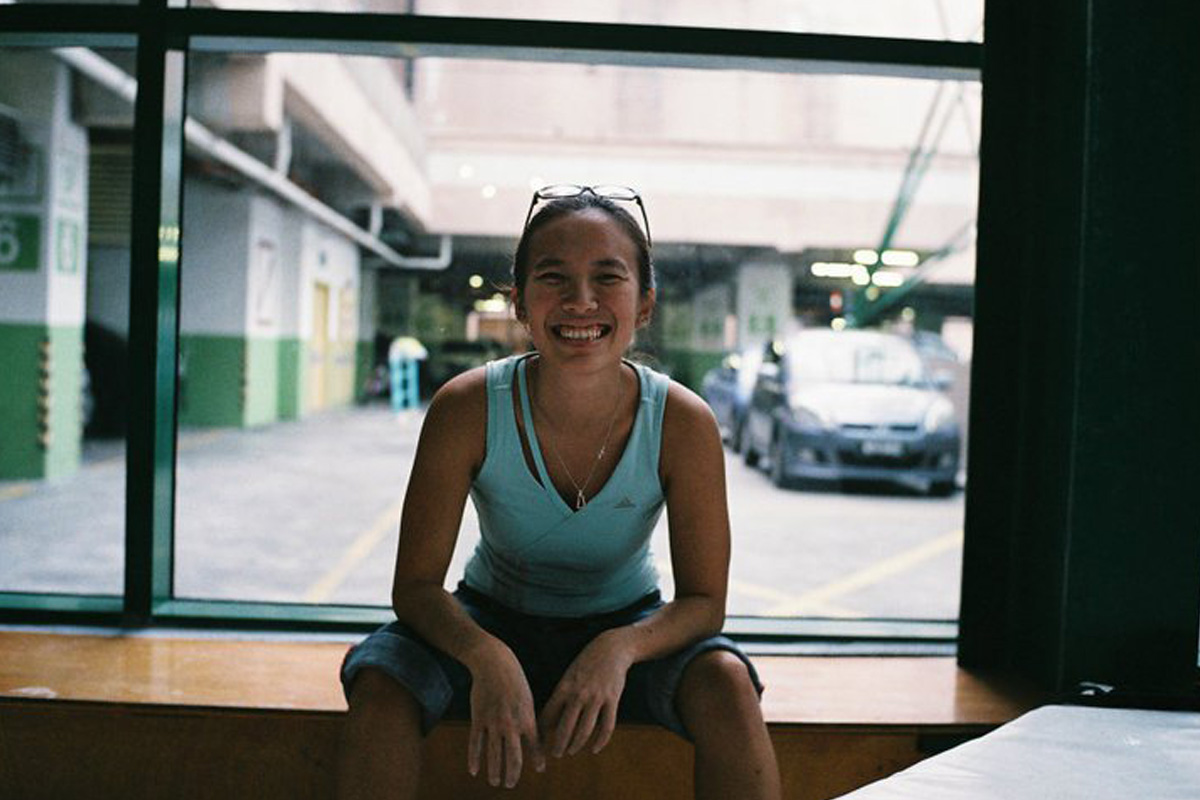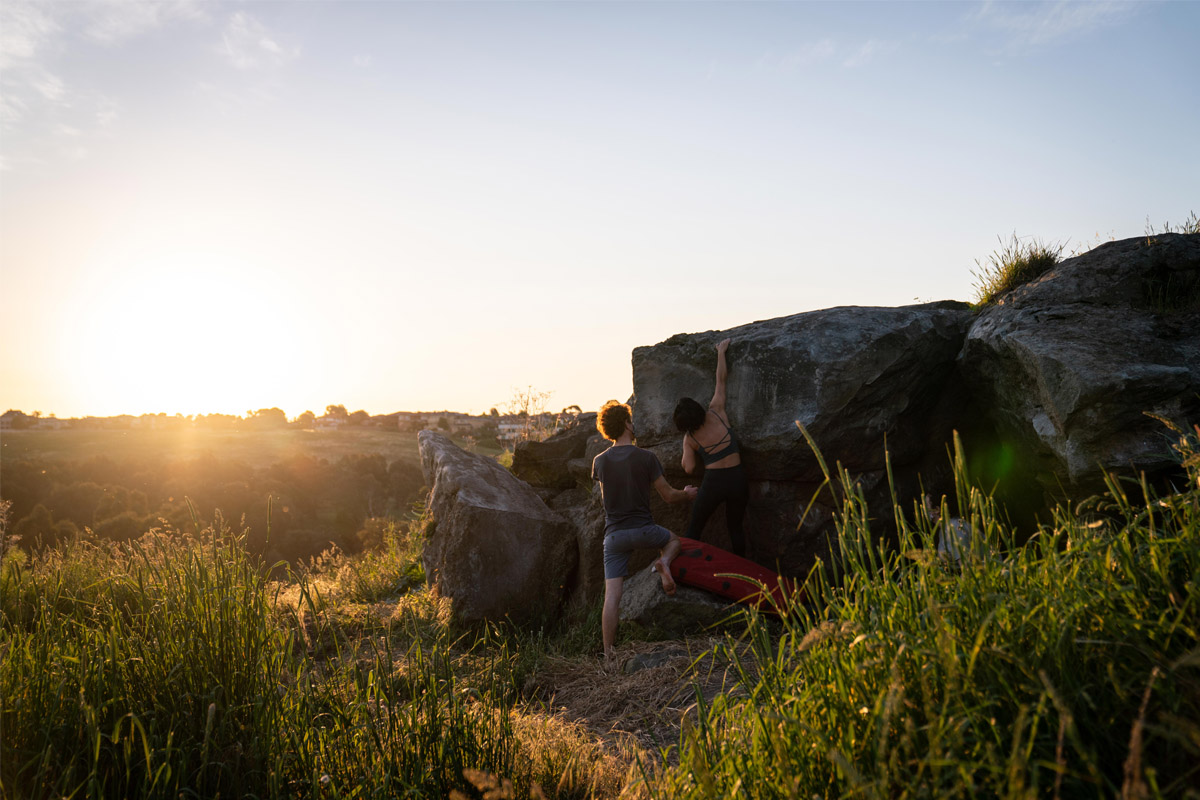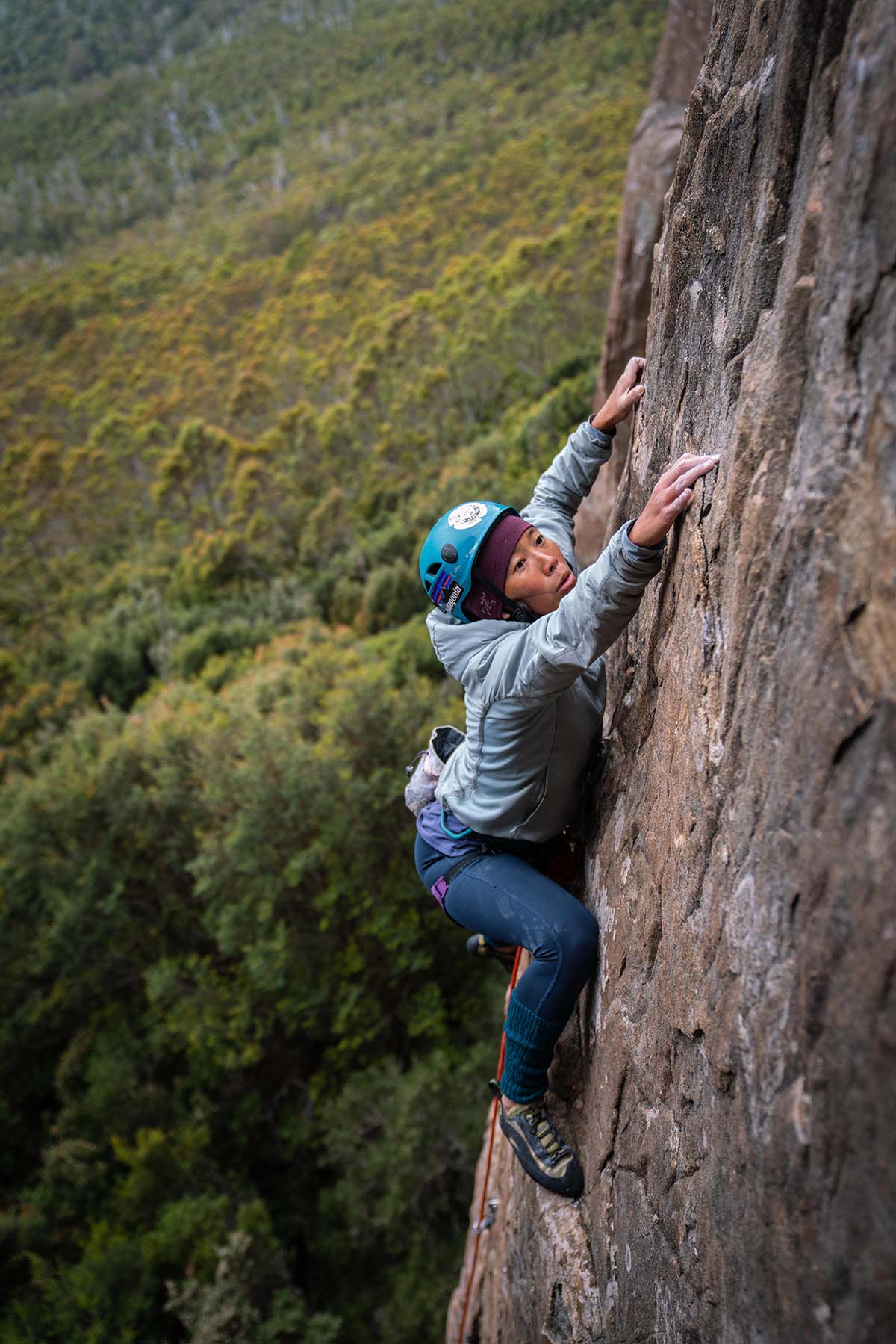Receive FREE ski socks with any purchase of snow product.
Free shipping on all orders.
Receive FREE kids' socks with any purchase of kids' product.*
16 April 2021
With Climbfest taking place this week, we wanted to introduce you to the founder of Women Uprising and the powerhouse behind the festival, Jo Lee. Learn more about her experience in the climbing community and how she is challenging the status quo.
This week, Climbfest is taking place in Ngunnawal Country (Canberra) with a series of indoor and outdoor workshops created for women. We wanted to share more about the organisation behind the festival, Women Uprising, and Jo Lee – the climbing guide empowering women with the skills, knowledge and confidence to make their own decisions outdoors.

Women Uprising was created to develop a supportive and safe environment for learning and sharing valuable life skills with fellow women climbers both indoors and outdoors.
To address issues of inequity and lack of representation of women-of-colour in the climbing industry, Women Uprising created The Affinity Initiative. The aim of this program is to increase accessibility to the outdoor rock climbing industry through Diversity, Equity and Inclusion (DEI) for women-of-colour (WOC).
To achieve this, The Affinity Initiative will partner with stakeholders in the outdoor industry, and work towards change in the following ways:
Jo Lee (she/her) is the founder of Women Uprising and The Affinity Initiative, seeking to challenge the status quo and hold space for women-of-colour. She is a climbing guide, fluent in four languages, as well as an activist-in-training for intersectional feminism in the outdoor climbing industry. She actively uses her platform to amplify and elevate the voices of First Nations people, and continues to work in solidarity alongside them in their fight for justice. Here, she shares more about her experience in the climbing industry, and outlines steps towards a more equitable and inclusive community.

Words by Jo Lee
I am a living being – fluid, adapting and always in motion.
I’m of Chinese ancestry.
And I’m also Malaysian.
I often feel like my identity is fleeting, trying to fit in from one place to another, never really belonging.
**
For the first few years of my life after moving to Australia, I was the only Malaysian Chinese I knew that trad climbed. I experienced feelings of unsettlement over questions and comments made by other climbers over the years, ones that I can now identify as racial microaggressions.
My journey into finally making sense of my place in the world as a marginalised person is new, but my experience of racism is not. I vigorously devoured books, training and workshops, to examine, analyse and critically dissect the accepted narratives of our society.
Racism is not a one-time event. It is the lived experience of every Black, Indigenous, person-of-colour. We need to acknowledge that racism exists in the climbing community.
The climbing industry is one of the many places saturated with whiteness - the first few non- Indigenous climbers were white men, and so were the women. The concept of recreation in the outdoors is a direct result of violent settler colonisation forcing the removal of Indigenous people from their sacred lands.
I didn’t start climbing until I was 21 at a climbing gym in Malaysia - I spent all my money from working 14 hour shifts at an advertising agency on a pair of harness and climbing shoes. I bought my first trad climbing rack when I was 29, again pretty much all my money earned from working. And I was only able to do that because I was living on minimal rent at the organisation’s dormitories that I was working at.
Women Uprising stemmed from the need to create equal access for women in climbing - where barriers include time, money, logistics, self-confidence and lack of mentorship. Women are still main caregivers if they have a family and still get paid less than men, and most women get into climbing through a male partner or friend.
However, equal does not mean equitable.
The barriers to climbing outdoors for women-of-colour doesn’t just stop at access. It’s the lack of seeing my people being represented in mainstream media, it’s getting worried about our safety because we wear a headscarf, it’s people giving us nicknames because they can’t pronounce a non-Anglo name, it’s the world telling us that all climbers are white, slim, strong and tall.
This is why The Affinity Initiative was founded - to challenge the status quo and empower, uplift and hold space for women-of-colour. We need spaces with affinity groups like Colourful Climbers and ClimbingQTs because it’s one thing saying that all are welcome, versus this is made for you in mind.

The journey to decolonising solidarity in the outdoors is simple. However that doesn’t mean that it’s easy. It’s similar to going through the 5 stages of grief, except this is a battle with how your brain is wired from a social construct of colonialism.
Part of the process is dealing with feelings of guilt, anger, defensiveness and/or ignorance. Look around you - your friends, family, social media, traditional media, school, university, literature, the outdoors and question the system that is built for you, which you maintain and benefit from.
That could look like not knowing where to start, fear of making mistakes or sounding ignorant. Stay curious and ask constructive questions.
The more you proactively take steps to educate and open yourself up to constructive feedback, the more you can expand your skill-set on how to make the outdoors a safer space for people-of-colour.
Once you’ve practiced defenselessness and acceptance, it’s time to take (non-performative) action. This work never ends - it’s a lifetime journey. Start with your local community, look for organisations who are already passionately doing the work by donating your money to gear raffles or funding scholarships for people-of-colour in the outdoors.
Still unsure about where or how to start? We've created this resource guide for The Affinity Initiative designed for the climbing and outdoor community.
Keep up to date with news and events from Woman Uprising by following along on Facebook and Instagram.